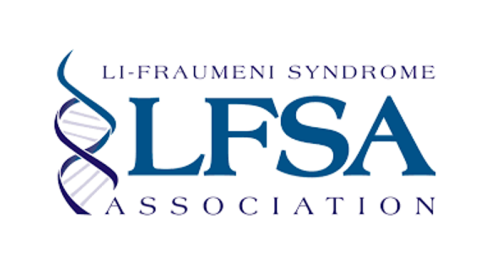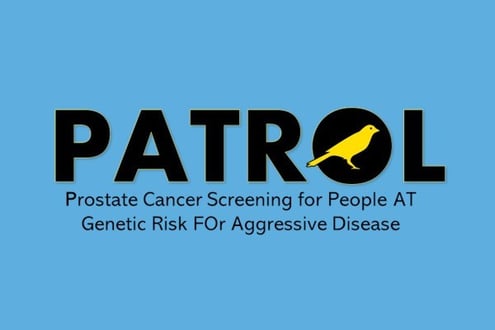TP53 (Li-Fraumeni Syndrome): Options for Managing Risk
Risk Management for People with Inherited Mutations
People with mutations have options for managing their increased cancer risk. We recommend that you speak with a genetics expert who can look at your personal and family history of cancer and can help you decide on a plan for managing your risk. Experts at the National Comprehensive Cancer Network (NCCN) created guidelines listed below for people with a mutation to manage their cancer risk.
In addition to the guidelines below, people with mutations should learn the signs and symptoms to be aware of and report to their healthcare team.
People with a mutation may also qualify for clinical trials looking for more effective screening or prevention for cancer.
In the News
Personal Story : Living a full life with Li-Fraumeni syndrome
This XRAY review is about a five-time cancer survivor who has an inherited mutation in the TP53 gene. People with inherited mutations in TP53 have Li-Fraumeni syndrome, which is linked to a very high lifetime...
|
Beginning Age |
Recommendation |
|
infancy |
Physical exam including neurologic exam every 3–4 months. Special attention should be paid to look for rare cancers. |
|
infancy |
Yearly whole body - including brain . |
|
infancy |
to look for adrenal gland cancers every 3-4 months. |
|
No set age |
Yearly skin exam by a . |
|
For people who previously received chemotherapy or radiation to treat cancer |
Blood tests to check complete blood counts every 3-6 months. |
|
Source: NCCN Guidelines: Genetic/Familial High-Risk Assessment: Breast, Ovarian, Pancreatic, , v. 3 2026. |
|
|
Beginning Age |
Recommendation |
|
18 |
Physical exam including neurologic exam every 6–12 months. Special attention should be paid to look for rare cancers. |
|
18 |
Yearly whole body and brain . |
|
No set age |
Yearly skin exam by a . |
|
20-25 (or younger based on family history) |
Colonoscopy and upper endoscopy every 2–5 years. |
|
For people who previously received chemotherapy or radiation to treat cancer |
Blood tests to check complete blood counts every 3-6 months. |
|
Source: NCCN Guidelines: Genetic/Familial High-Risk Assessment: Breast, Ovarian, Pancreatic, , v. 3, 2026; Genetic/Familial High-Risk Assessment: Colorectal, Endometrial, Gastric, v. 1, 2025. |
|
|
Beginning Age |
Recommendation |
Additional Information |
|
No set age |
Learn to be aware of changes in your breasts. |
Self exams may be most informative at the end of the menstrual cycle. |
|
20 (or earlier based on family history) |
Breast exam by doctor (also known as a clinical breast exam) every 6-12 months. |
The guidelines recommend that people who have risk-reducing mastectomy continue to receive clinical breast exams. |
|
20 (or earlier based on family history) |
Yearly breast with and without contrast. |
|
|
30 |
Yearly . |
|
|
75 |
Have a conversation with your doctor about whether you should continue, stop or change breast screening. |
|
|
No set age |
Discuss the benefits, risks and costs of double mastectomy with your doctor. |
Risk-reducing mastectomy lowers breast cancer risk by 90%, but has not been shown to improve survival. Even after double mastectomy, some breast tissue, and therefore cancer risk remains. The guidelines recommend continuing clinical breast exam after risk-reducing mastectomy. |
|
Source: NCCN Guidelines: Genetic/Familial High-Risk Assessment: Breast, Ovarian, Pancreatic, , v. 3 2026. |
||
Types of pancreatic cancer screening tests
There are two tests that are used to look for pancreatic cancer in high-risk people.
- MRCP (Contrast-enhanced magnetic resonance cholangiopancreatography) is a special type of imaging that looks closely at the pancreas, liver, gallbladder, bile duct and pancreatic duct to find abnormalities such as cancer.
- EUS (Endoscopic ) involves passing a tiny scope with an attached probe down the esophagus to the stomach. This allows doctors to look closely at the pancreas.
Researchers are testing new approaches to pancreatic cancer screening and prevention through clinical trials.
Participate in research
Pancreatic cancer guidelines
|
Beginning Age |
Family History |
Recommendation |
|
50 (or earlier based on the youngest case of pancreatic cancer in the family) |
For mutation carriers with a first- or second- degree relative with pancreatic cancer. |
|
|
Source: NCCN Guidelines: Genetic/Familial High-Risk Assessment: Breast, Ovarian, Pancreatic, , v. 3 2026. |
||
|
Beginning Age |
Recommendation |
|
40 |
|
|
Source: NCCN Guidelines: Genetic/Familial High-Risk Assessment: Breast, Ovarian, Pancreatic, , v. 3 2026. |
|
More Resources
Visit our partner

Li-Fraumeni Syndrome Association
LFSA provides information, advocacy and resources for individuals and families with Li-Fraumeni syndrome.Participate in research
The LiFT UP Li-Fraumeni & TP53: Understanding & Progress Study
Clinicaltrials.gov identifier: NCT04541654
Personal story
Personal Story : Living a full life with Li-Fraumeni syndrome
This XRAY review is about a five-time cancer survivor who has an inherited mutation in the TP53 gene. People with inherited mutations in TP53 have Li-Fraumeni syndrome, which is linked to a very high lifetime...



